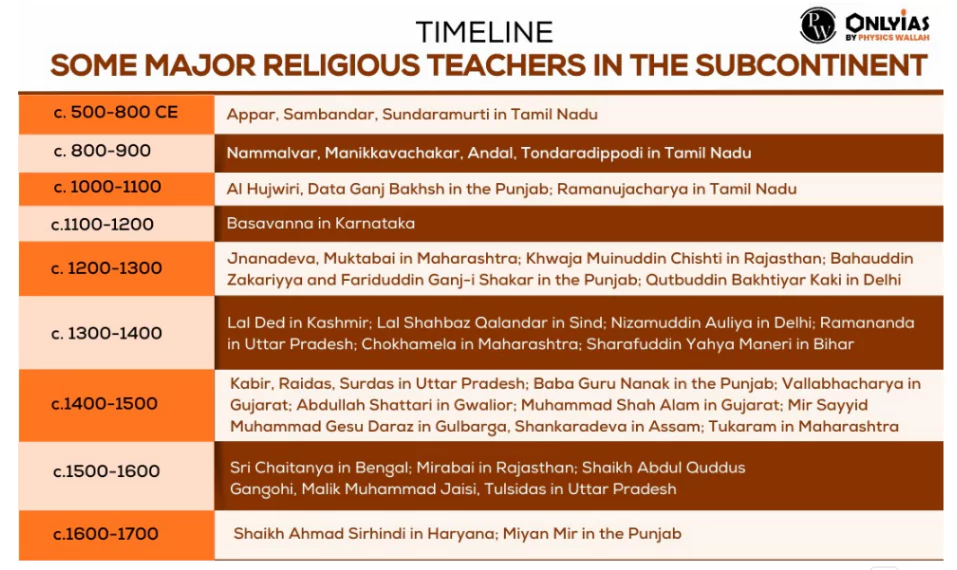![]() May 15, 2024
May 15, 2024
![]() 3333
3333
![]() 0
0
Sufism, known as “tasawwuf” in Islamic texts, is the mystical dimension of Islam. The origin of the word is debated. It might derive from “suf” (wool), referencing the woollen garments Sufis wore, “safa” (purity), or “suffa,” referencing a platform near the Prophet’s mosque where devoted followers gathered to learn faith. Its essence is seeking deeper, personal communion with God.

| Must Read | |
| Current Affairs | Editorial Analysis |
| Upsc Notes | Upsc Blogs |
| NCERT Notes | Free Main Answer Writing |
The Sufi movement in India emerged as a path to seek a personal connection with the divine, emphasizing direct communion with God and spiritual growth under the guidance of a mentor. Through literature, poetry, music, and spiritual practices, Sufis aimed to transcend ritualistic norms and attain inner purity. The establishment of hospices and the propagation of orders like Chishtiya, Qadriya, Suharwardiya, and Naqshbandiya played crucial roles in spreading Sufism’s message of love, compassion, and trust in the divine plan across India.
| Related Articles | |
| BHAKTI MOVEMENT: IMPORTANCE, NAYANARS | Sufis And Medieval Mystic Saints |
| Economic Development: Challenges and Goals Explored | Sangam Age – Political History Of South India |
<div class="new-fform">
</div>
Latest Comments